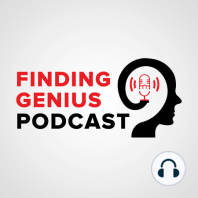29 min listen

Deep Sea Extremophiles and Methane: Victoria Orphan Explains the Connection
Deep Sea Extremophiles and Methane: Victoria Orphan Explains the Connection
ratings:
Length:
30 minutes
Released:
Jul 29, 2020
Format:
Podcast episode
Description
Researcher Victoria Orphan implements environmental microbiology to understand the ecology of organisms in deep sea spaces unsuitable for human life. Her research has broad implications: these life forms process methane, a compound involved in global warming. In this podcast, she discusses Some of the symbiotic relationships in these ocean depths, from the farming yeti crab that grow their own bacteria food to the archaea and bacteria symbionts that she studies; How these microorganisms sequester methane and why that's important; and What this has to do with discovering life on Mars. Victoria Orphan is the James Irvine Professor of Environmental Science and Geobiology and the director of the Center for Environmental Microbial Interactions at Caltech. She studies the ecology of microbes and the minerals and elements that they cycle. This means utilizing tools of microbiology to understand how these microorganism function. Because she focuses on deep ocean systems, these interactions are often between undomesticated organisms that exist in extreme environments like hydrothermal vents. She's trying to learn how they influence the cycling of geological systems and elements like carbon and methane. She discusses some of her ventures into the ocean, describing the curious yeti crabs she observed—crabs that have a symbiosis with oxidizing bacteria and wave their arms over sulfur-rich vents to feed these bacteria that coats their arms and that they then eat. A lot of her focus, however, is on the microscale ecology of what is happening in these spaces. This includes microorganisms that are involved in the transfer of methane. She describes her study of a microbial symbiosis that is occurring between an archaea and a bacteria that use sulfates from seawater, removing methane. She expounds on the challenges of such a study and how this may help understand what exactly ends up in the atmosphere and causes warming. To find out more, see her lab's website: orphanlab.caltech.edu. Available on Apple Podcasts: apple.co/2Os0myK
Released:
Jul 29, 2020
Format:
Podcast episode
Titles in the series (100)
Identity Theft Protection Made Easy And Free From Civic.com: Civic.com helps people protect their identity and process immediate alerts through text message if their identity appears to have been compromised. Jonathan Smith, CTO, explains how Civic.com helps empower its users… by Finding Genius Podcast